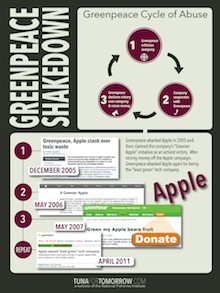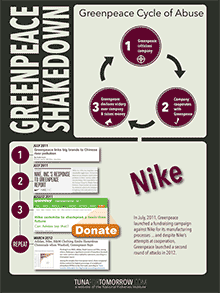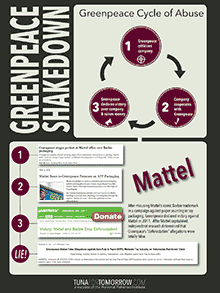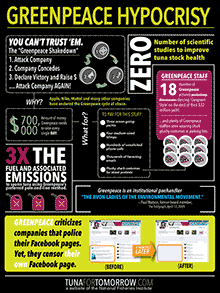The content mill, healthdigest.com, recently put out a blog post with the clickbait headline “When You Eat Canned Tuna, This Is What Happens To Your Blood Pressure.”
Spoiler alert: We never hear about what actually happens to heart health when you eat seafood like tuna. According to reputable groups like the American Heart Association, eating seafood at least twice a week significantly reduces the risk of heart disease and stroke. We just get the opinion of a single doctor who claims, without support, that one can of canned tuna exceeds recommended daily sodium intake.
“[R]egular canned tuna contains more than what the physician would recommend as a maximum serving of added sodium for a day, which is 300 milligrams. “Most canned tuna has more than that in a single serving,” Dr. [Joel] Fuhrman shares.”
It’s not clear where this 300 mg number comes from, but it isn’t from any credible source of nutrition advice.
FDA-driven Daily Valuesfor sodium is less than 2,300 milligrams (mg) per day. The World Health Organization recommends a slightly more conservative 2,000 mg per day. That means that 300mg would be somewhere between 13 and 15 percent of recommended daily intake.
Five ounce cans of light or albacore tuna, packed either in water or oil, from any of the major American brands, all contain roughly similar amounts of sodium—amounting to anywhere between 12 and 18 percent of daily intakes depending on which product and recommended values you use.
The article goes on to note that major tuna brands also offer lower sodium options—and that’s true—but the more important point is that none of these product come anywhere close to exceeding daily recommended amounts.
Described as a “celebrity doctor”, Dr. Joel Fuhrman is a health guru and author who pushes a proprietary eating program he calls the “Nutritarian diet”. While we can’t speak for the wisdom of Nutritarianism writ large, we can say that this particular piece of advice is not just squarely wrong on the facts, it’s dangerous.
That’s because shelf-stable tuna is one of the most affordable, popular, and widely available sources of protein in the United States.
FDA’s Dietary Guidelines for Americans recommend adults eat 8-12 ounces of a variety of seafood each week for heart and brain health benefits. Seafood like canned tuna contains key nutrients, from iron and omega-3s to selenium and iron.
But Americans are already failing to meet these minimums. Misleading and unsubstantiated advice like Furhman’s at Healthdigest will only make these alarming trends worse.
Watching your sodium intake is indeed good advice, but so is eating canned tuna. And the two are not in conflict.








